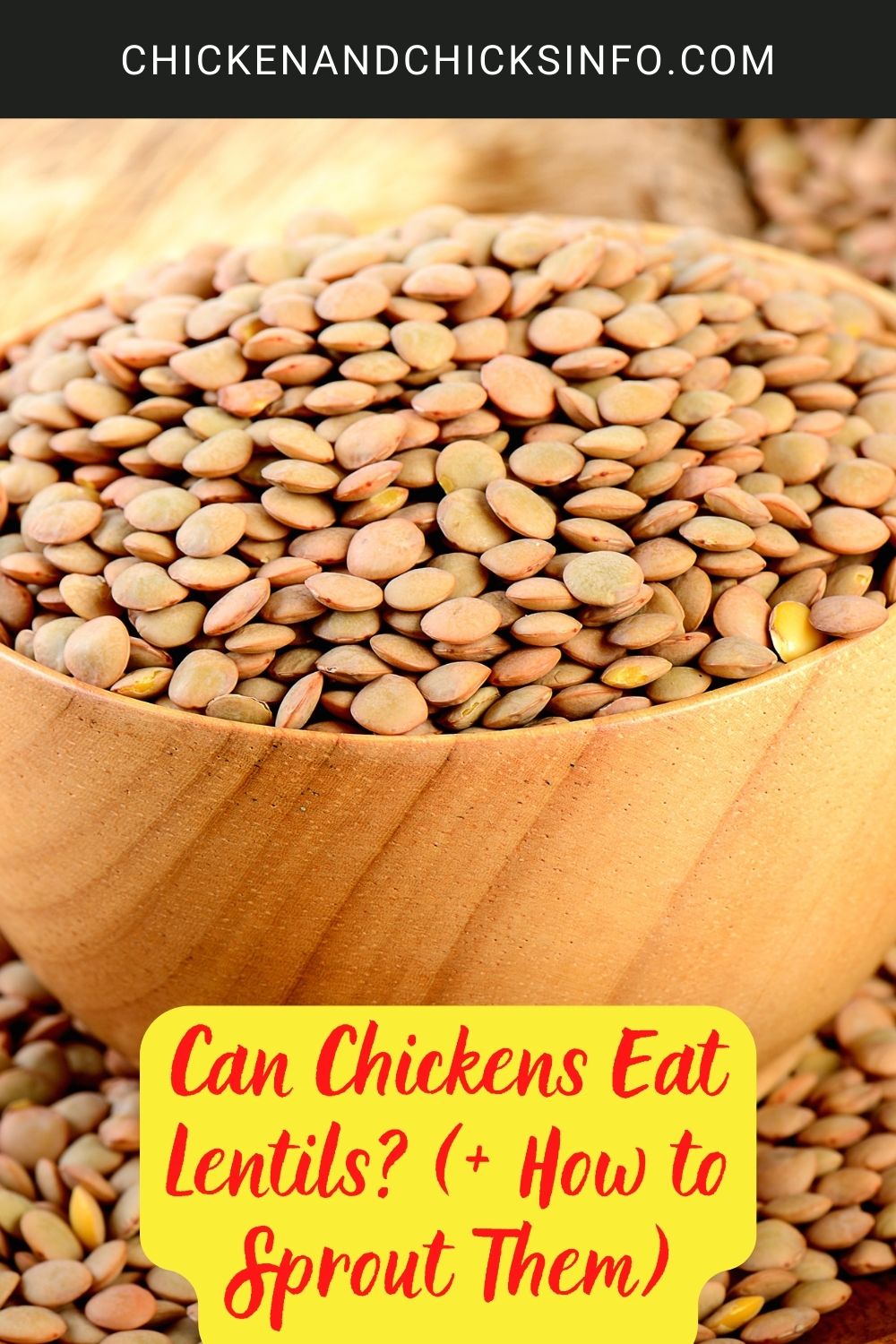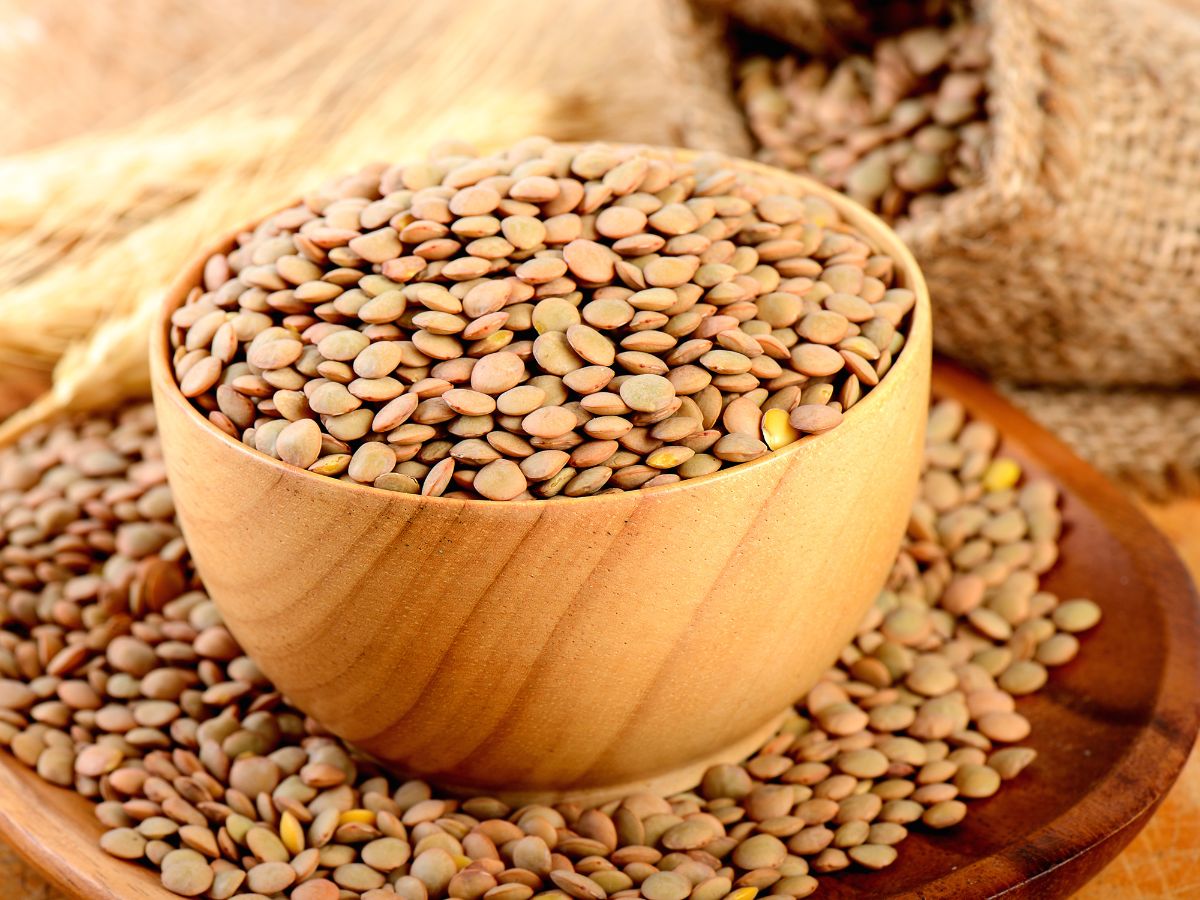
Lentils, it’s one of those foods that always seems to be in the back of the cupboard. I’m not going to recommend any creative dishes for you, in this article I’m looking at whether or not you can feed them to your flock.
Can chickens eat lentils? Yes, chickens can eat lentils. As with other legumes, they need to be cooked or sprouted before giving them to chickens. Sprouting is their preferred method in my experience.
Jump to:
What Are Lentils Exactly?
Lentils are legumes, and legumes are the seeds and fruits of plants in the Fabaceae family.
They’re also cousins to chickpeas, beans, and peanuts, which makes more sense if you've seen or tasted lentils.
There are actually a few different types of lentils, usually defined by their color. Red lentils are probably the most common, with black, green, yellow, and brown also used in a range of dishes.
They make for a healthy addition to any dish they’re added to. Lentils are nutrient-dense, and high in protein and fiber. What they lack in flavor, they more than makeup for in nutritional value.
Can Chickens Eat Lentils?
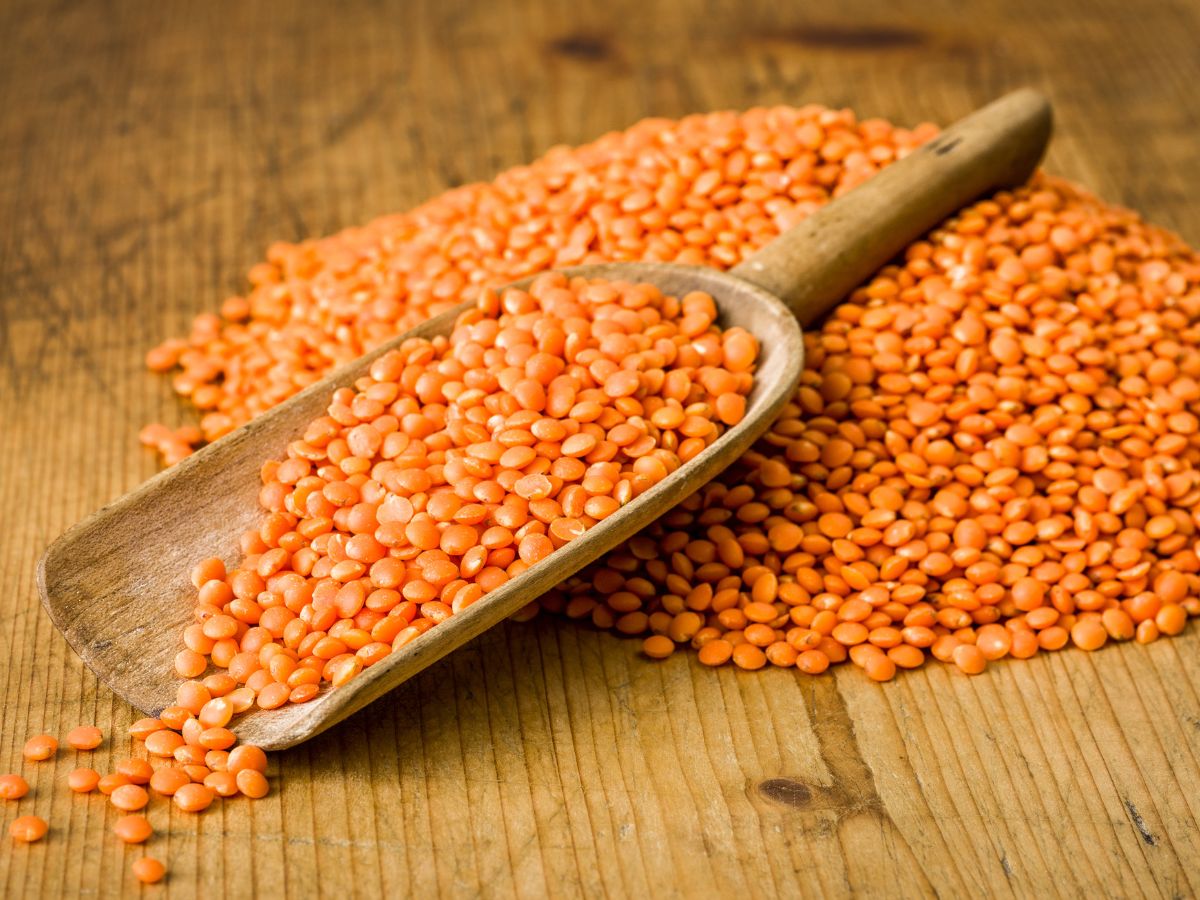
Yes, chickens can eat lentils.
Just don’t feed them raw lentils!
According to Wikipedia, lentils shouldn’t be eaten raw. Like other beans, they contain toxins when raw. Although they don’t need to be cooked to neutralize the toxins as is the case for kidney beans.
Sprouting lentils seems to be the preferred way chickens like to have them served up.
To sprout lentils, all you have to do is soak them in water for a couple of days. Shoots sprout up pretty quickly, and chicks love to eat the shoots.
Here is a video showing you how you can sprout some lentils and serve up a tasty treat chickens just can’t seem to get enough of:
Are Lentils Healthy for Chickens?
Yes, lentils are healthy for chickens. Just as they are for us.
Each type of lentil has its own unique composition of antioxidants, vitamins, and minerals. But something they share in common is that they’re nutrient-dense.
Cooking or sprouting lentils and adding some to their feed will only enhance your flock’s diet. Just keep the amount lentils and all other treat foods to a maximum of 10% of their overall diet.
The general rule of thumb is that 90% of a chicken’s diet should come from their formulated feed.
Some Foods Chickens Shouldn’t Eat
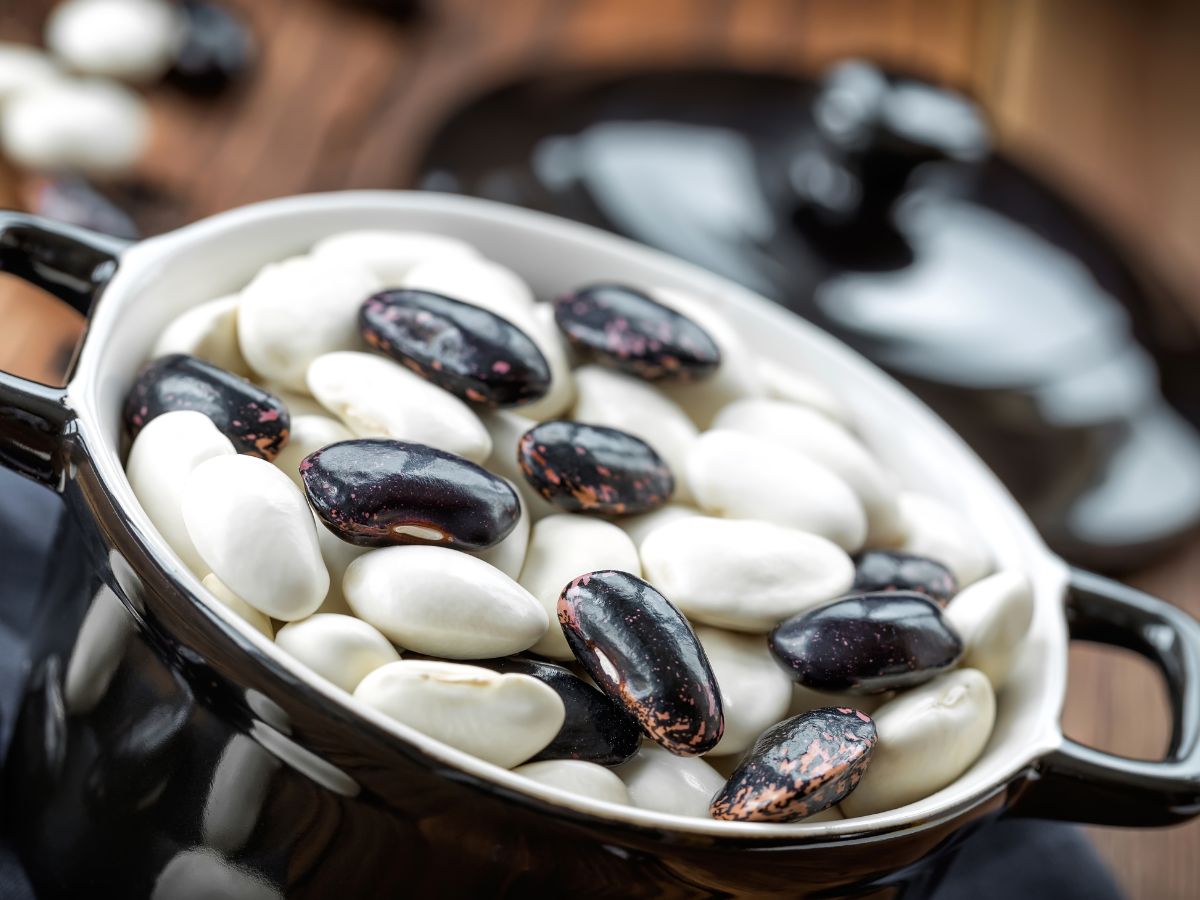
Not all foods are fine for chickens. Here is a list of some of the foods that are known to be toxic or potentially harmful to chickens:
Raw Beans - This gets spoken about a lot because beans are so common, yet if they haven’t been cooked they are potentially very toxic.
Unless beans have been boiled at a high temperature for at least 10 minutes they’re not safe to feed to your flock as they still contain a toxin called phytohaemagglutinin.
Green Potatoes - If you’ve read some people say potatoes are fine and some people say they’re not, it’s because potatoes are fine - unless any areas of the potato are green.
This also applies to green tomatoes and some other vegetables in the nightshade family. When they’re green they have a toxin called solanine present which is toxic to chickens and most animals.
Chocolate - It might feel like you’re doing your flock a big favor by sharing your chocolate, but it’s potentially more harmful than it is kind.
Chocolate contains two compounds that are toxic to chicks; theobromine and caffeine. Known to cause heart problems and even death in large amounts, keep the chocolate cake to yourself!
Salty/Greasy Foods - Salty, greasy foods, such as most fast foods and processed foods are hard for chickens to digest and can cause them some health problems in the long-term.
Keep the fries and cheeseburger for yourself. I am not going to try and make you feel guilty for indulging in fatty foods, honest.
Candy/Sugary Treats - Your flock does not need sugar from candy and similar treats. It can lead to weight gain and affect their egg production in the long term.
Some Foods Chickens Love
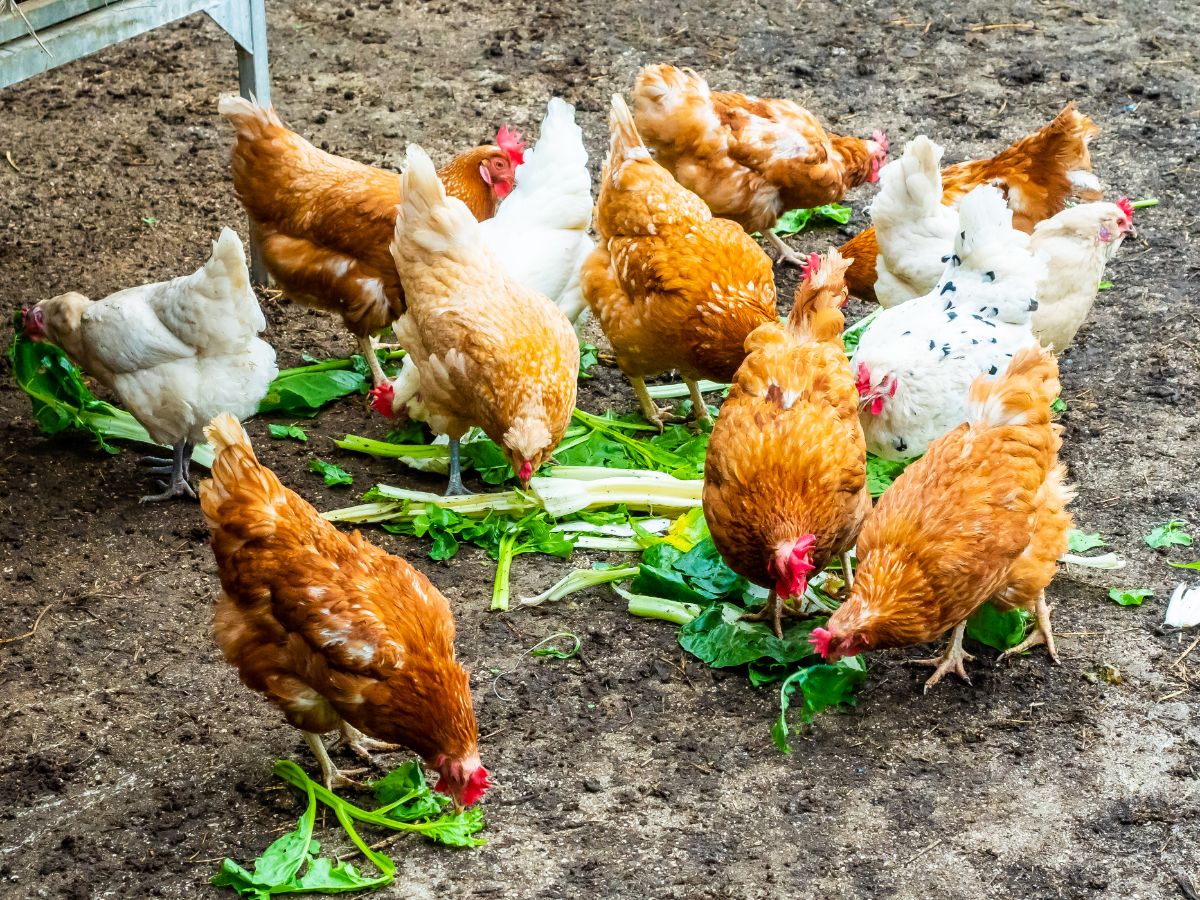
We’re pretty much spoiled for choice when it comes to feeding our chickens table scraps and other foods.
Here are some of the foods chickens love that provide some decent nutrition, and more importantly are perfectly safe for them to eat.
Grains - Chickens love grains, and gains love chickens. Corn, wheat, rice, grains like that are fine for them and give them something to scratch around for.
Vegetables - Most cooked vegetables are fine for chickens and provide a range of vitamins and minerals that are great for their health. Start with carrots, broccoli, kale, jicama, and pumpkin.
Fruits - Fruits can also provide some important nutrition and health benefits. Bananas, apples, mangoes, and berries are good to start with.
Related content - Why not feed your chickens some honey nut cheerios!
In Summary
Lentils are fine for chickens and can be added to the list of foods that help provide a tasty and nutritious treat.
You’re right to be cautious with raw lentils, as you should be with all beans. Raw lentils contain the toxin lectin, but lectin will be broken down when cooked or soaked for sprouting.
Either soak them to sprout or boil them for 15-20 minutes before giving them to your chicks.
Resources
Feeding chickens table scraps - McMurray McMurray Hatchery
Solanine - Wikipedia
